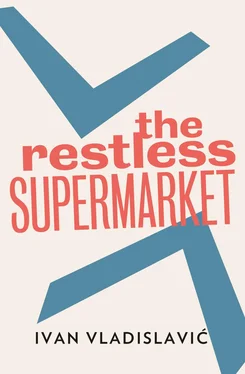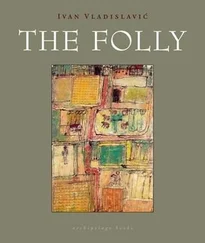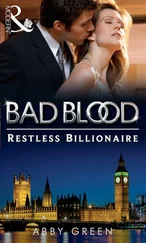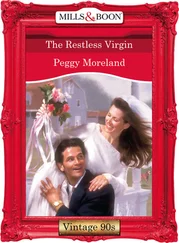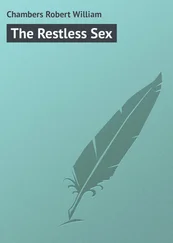Half a city (6): Berlin? Beirut? Joburg.
*
One day, as I was passing along Kotze Street, three palm trees hove in sight, proceeding sedately through the lunch-hour traffic. Nothing surprised me any more, and I strolled on for a closer look as if it were the most ordinary thing in the world. Each tree had a lorry to itself. They were imposing specimens, fully grown, their roots bound up in hessian like enormous potted ferns. I deduced that they were en route to the Civic Theatre, which was then being renovated; although the construction work was far from complete, the landscape gardeners were already at it, and I had been monitoring their progress during my daily constitutionals. I followed the convoy to the construction site.
Today the place depressed me. This endless cycle of building and demolition, this ceaseless production of rubble. Was this the end of civilization? While the trees were being unloaded, I went to view the shattered masonry that Bogey had threatened to market. And it was then that I remembered the flagstones. Near the grand entrance, Johannesburg’s Civic Theatre had boasted a little memorial terrace, modelled on the famous original outside Grauman’s Chinese Theatre in Hollywood. Here, visiting stars of stage and screen and local celebrities alike had left impressions of their hands and feet (and other parts of the anatomy when these were famous) in squares of wet cement. Second-rate buffoons mostly, worthless even before they washed up on these shores, but with a few old troupers among them, like Danny Kaye and Sidney James. What had become of their memorials? The place where they should have been was covered with rubble and rusted scaffolding.
The junior official dozing in the prefabricated hut marked ‘Site Manager’ did not have the faintest idea what I was talking about, and left me to hunt about alone under boards and buttresses. After a while, a curious labourer approached. I was able to convey the object of my quest to him by pressing my palms into a bank of muddy earth and scratching my name on it with a nail. He kindly fetched me an ill-named ‘hard hat’ from somewhere, and with that bit of protection rattling against my skull, I was guided into the half-built interior of the theatre. In a corner smelling of wet cement, under a sheet of blue plastic, I rediscovered the missing evidence, stacked up in blocks. My guide heaved one of them into the light for me. It was Max Bygraves. A personal favourite. I put my hands into the impressions of his and, strangely enough, they were a perfect fit.
Perhaps our first language was a dialogue with the earth in prints of hoof and paw? It is always affecting when a part of one’s own body becomes a measure of the world. The inch assumes its proper importance in the length of a thumb joint. The measures that matter most are not metres or yards, but hands and feet. Not to mention heads (thinking of my head and the hill).
Merle, who was rather well travelled, had been to Grauman’s. Her most vivid recollection of the place, she once said, was that all the stars had the daintiest extremities imaginable. The stilettos had left behind breathless little exclamation marks, as if the earth was surprised to find such sublime beings abroad upon her surface. The tourists went about trying to force their walking shoes into the tracks left by their idols — but none of them fitted. Ugly sisters! Clodhoppers!
Just then a terrible racket started up outside. Glancing out through a ragged hole in the wall, I saw palm trees gesticulating on the horizon, and imagined for a bizarre moment that I had been transformed, with horrible injustice, into a tourist in America. But it was just our newly transplanted windbreak attracting attention. Vegetable décor, animate atmosphere. The workers were tamping down the earth around the boles with pneumatic hammers. Strips of instant lawn were piled up like rolled carpets, ready to be laid. In a week or two, the ill-informed would swear that the palms had grown to maturity on this very spot.
*
Into the crumbling order of the Café Europa, Spilkin introduced a lady friend. Darlene. I took her for one of the escorts, as they apparently preferred to be known, an increasingly brazen coterie of whores who drummed up custom under our roof. Even when she joined our table, I assumed that she was just another hanger-on and that Spilkin’s interest in her, like my own, was sociological. But at the end of the evening, when I rose to leave, I suddenly noticed his hand on her thigh. It was a shock, believe me. Like spotting an error on the final proofs — a comma, say, where there should have been a full stop — just as the printer’s devil stuffed them into his satchel. It gave me such a turn, I nearly regurgitated my dinner.
I had the good sense to keep my objections to the liaison, such as they were, to myself. Times were changing and one never knew what would happen next. But in the days to come, I made a point of appraising this Darlene with my old eye for detail: I marked the chipped nail polish, the bruised eyeshadow, the great buckles as trusty as a steeplejack’s on the straps of her brassière, the bent pins holding together the frames of her sunglasses. None of it up to scratch. I didn’t like her colour either. One isn’t supposed to say so, but I’m past caring. Coffee finds favour in some quarters, but this was insipid. Less melanin in it than a cup of Milo. Great-grandfather on the mother’s side came from Madras, I discovered later, and it showed in her features. A touch of the tarboosh, I said to Merle, but she wasn’t amused.
Naturally, there was more to it than her colour. She was coarse , in a raw state, unrefined. She was one of those people who consider it amusing to sneak up behind you and clap their hands over your eyes — never mind the greasy fingerprints they leave all over your lenses — and you’re supposed to guess who the culprit is. I would not play the game, even though I recognized her at once by her smell: sweat, perfume and cigarette smoke. Always an unsettling combination.
She was barely literate. She kept saying pri-horrity and cre-hative, negoti-hation and reconcili-hation. Some of it was almost Dickensian. ‘I’s allus paid on the werry last Vens’day arternoon of the munt,’ she’d say, and you’d swear some gin-shop red-herring vendor was standing before you rather than a bank teller. She developed a passion for pasticchio nuts. She ordered expressos and blonk da blonks as if they were going out of fashion. And she never shut up for a minute.
I began to mine her, like all the others, for misuse. Considerately, when Spilkin wasn’t around. But she would go and tell him, pleased as punch, that she was going to be in my book . He pretended to be proud of her, but that snout of his was out of joint.
Nevertheless, he chose to show me a ‘love letter’ she had written him on the back of a postcard from the Durban aquarium. Darling My, it began dyslectically. I had the foresight to reconstruct it for my notebook.
Darling My,
Having a wonderfull time here in Durbs. The family is all fine. But I can’t stop thinking about you, Sweetie. Its just a natural phenomena. C U soon.
PS please pay the phone bill, I forgot!!!
Chow for now,
Your darling Darlene
The telephone account was included. An address in Bezuidenhout Valley. I returned the card and the account to their envelope, and Spilkin put it away in a folder. He had some other papers there, which he rummaged through, and for a moment I thought he was going to inflict his reply upon me too. I could just imagine: My fuliginous darling, my sooty beauty, my dirty sweep. But he thought better of it.
Her letter was the last straw. He found it charmingly innocent and endearing, but I was mortified. It was so tasteless. Not just the fact that she was taking advantage again, but the babyish hand, the tone, the excess of exclamation marks. It changed my opinion of Spilkin irrevocably. The forgivable weaknesses, the hairline cracks that had been there all along, suddenly yawned wide to swallow my good estimation of him. But I couldn’t help thinking that her coarseness had rubbed off on him, that close association had roughened him up, and so I refused to give in.
Читать дальше
